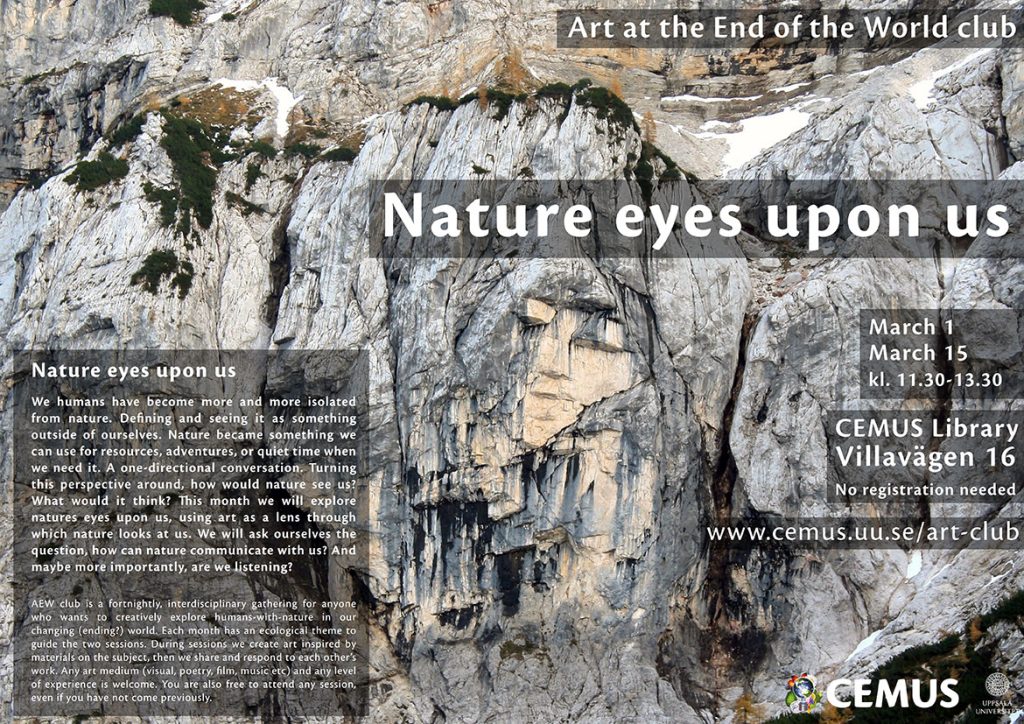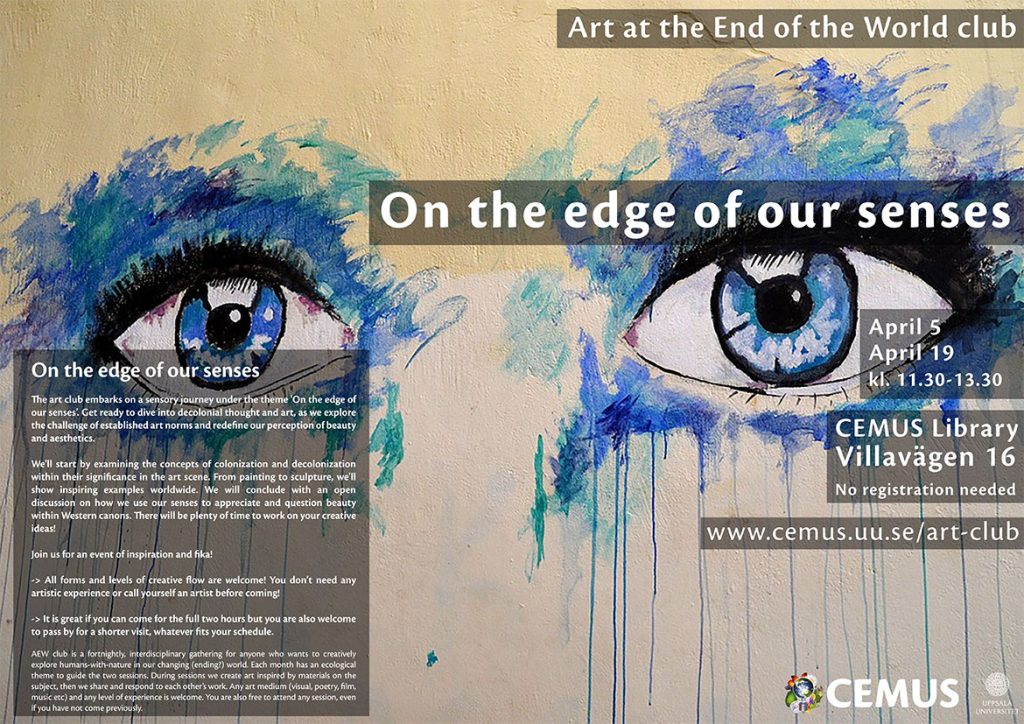Welcome to the Art at the End of the World club and the third theme this spring “On the edge of our senses”!
When: April 5 at 11.30-13.30 CET (April 19 event cancelled)
Where: CEMUS Library, Geocentrum, Villavägen 16, see map here https://link.mazemap.com/gVZ978v2
No registration needed
Hosted and organized by Sara Lopez Barreiro and Eva Gielen, Course Coordinators at CEMUS and the course Perspectives on Climate Change – Ecopsychology, Art and Narratives, 7.5 credits.
The art club embarks on a sensory journey under the theme ‘On the edge of our senses’. Get ready to dive into decolonial thought and art, as we explore the challenge of established art norms and redefine our perception of beauty and aesthetics.
We’ll start by examining the concepts of colonization and decolonization within their significance in the art scene. From painting to sculpture, we’ll show inspiring examples worldwide. We will conclude with an open discussion on how we use our senses to appreciate and question beauty within Western canons. There will be plenty of time to work on your creative ideas!
Join us for an event of inspiration and fika!
-> All forms and levels of creative flow are welcome! You don’t need any artistic experience or call yourself an artist before coming!
-> It is great if you can come for the full two hours but you are also welcome to pass by for a shorter visit, whatever fits your schedule.
Art at the End of the World club is a fortnightly, interdisciplinary gathering for anyone who wants to creatively explore humans-with-nature in our changing (ending?) world. Each month has an ecological theme to guide the two sessions. During sessions we create art inspired by materials on the subject, then we share and respond to each other’s work. Any art medium (visual, poetry, film, music etc) and any level of experience is welcome. You are also free to attend any session, even if you have not come previously.
During these sessions we are keen to create a safe space for exploring what can be difficult subjects. Creating with and around nature can be a joyful and comforting experience, yet we must be mindful of the times we live in. Therefore, we aim to cultivate a supportive and emotionally open space where it is possible for people to express eco-grief and anxiety through creativity, while leaving room for hope. Your work does not have to be about the end of the world!

Photo: Borut Kantuser

